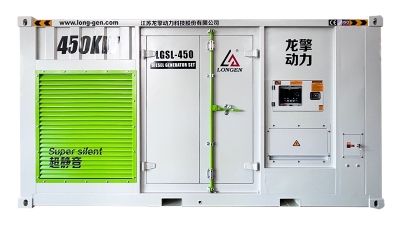5 Essential Features of the 500 Kva Generator You Never Knew About
Table of Contents
- Key Factors to Consider When Choosing a 500 Kva Generator
- Understanding the Importance of Power Factor in Generators
- How Fuel Efficiency Can Impact Your Generator's Performance
- The Role of Automatic Voltage Regulation in Generator Functionality
- Maintenance Tips for Maximizing the Lifespan of Your Generator
- Exploring Noise Reduction Technologies for Your 500 Kva Generator
- Maximizing Efficiency: The Ultimate Guide to Choosing Rental Diesel Generator Sets from 10kVA to 1250kVA
- FAQS
- Conclusion
- Related Posts
In today’s fast-changing energy world, having reliable power solutions is more important than ever. The 500 Kva Generator really shines as a versatile and sturdy option, perfect for a bunch of different setups—whether it’s a busy commercial place or an industrial site. Here at JIANGSU LONGEN POWER TECHNOLOGY CO., LTD., we’re proud to be a leading name in generator manufacturing. We make high-quality diesel generator sets that are built to handle all kinds of operational needs. Our generators are powered by top engines from brands like Perkins, Cummins, and Mitsubishi, and they come with dependable alternators from Stamford and Leroy Somer too. All this ensures top-notch performance and toughness you can count on.
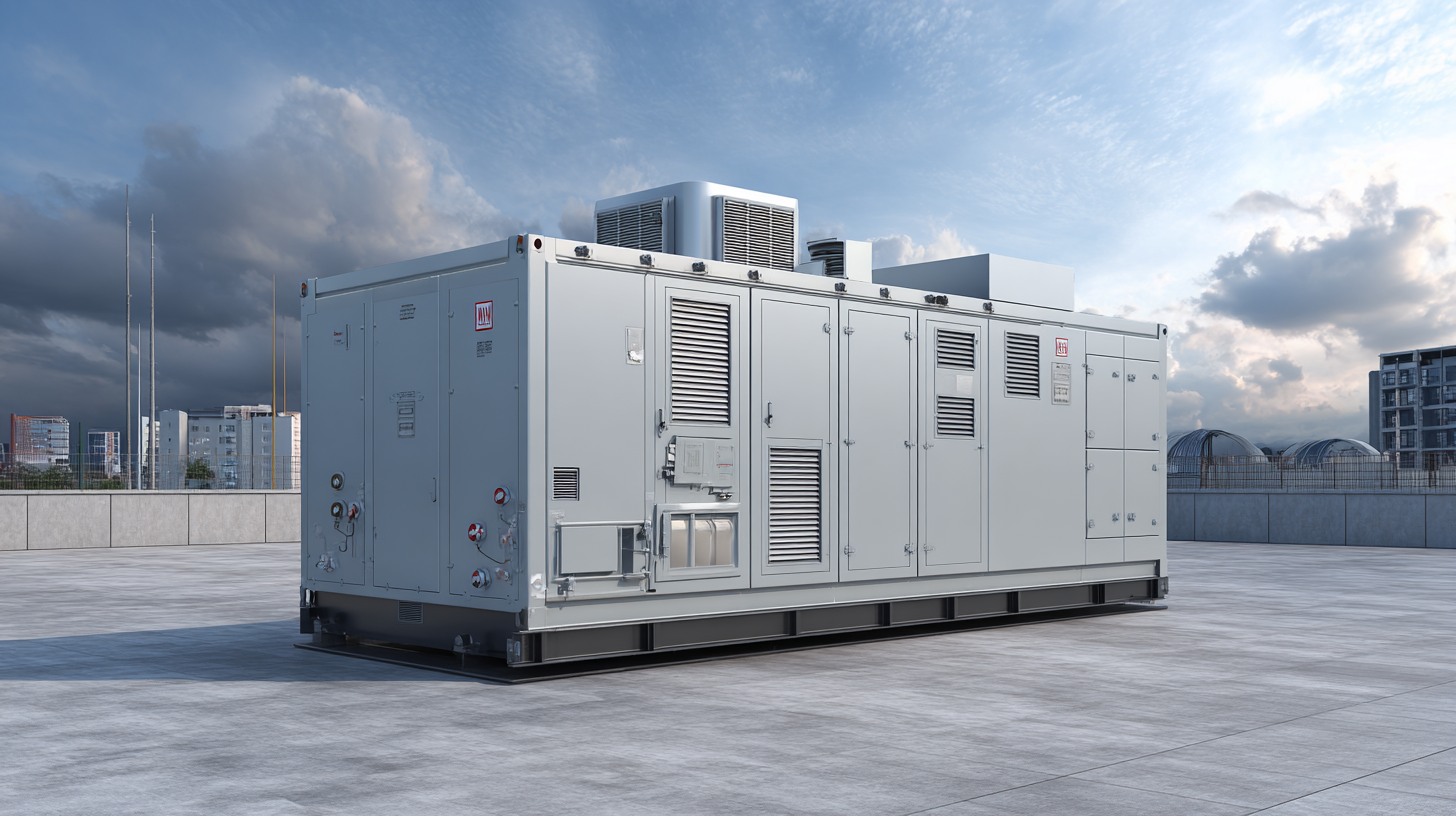
In this post, I’ll walk you through five key features of the 500 Kva Generator—things you might not even know—that can really help you improve your power setup and keep things running smoothly, no matter where you are.
Key Factors to Consider When Choosing a 500 Kva Generator
When you're on the lookout for a 500 KVA generator, there are a few key things to keep in mind to really make sure you’re getting something reliable and performing well. One of the first things you should think about is the type of fuel the generator uses. Diesel generators are often a popular choice because they tend to be more durable and efficient, especially in places where energy supply isn’t always stable. Recent industry reports suggest that the market for residential generators is actually growing pretty fast, mainly because more folks are looking for dependable power sources. So, it’s worth taking a close look at how fuel-efficient these options are and whether diesel or gas is more readily available in your area — those details can really steer your decision.
Understanding the Importance of Power Factor in Generators
Understanding why power factor matters so much for generators is actually pretty important if you want things to run smoothly and efficiently. Basically, the power factor tells you how well your generator is converting electrical power into useful work. In well-designed systems, it usually hovers between 0.8 and 1.0. When the power factor drops below that, especially under 0.9, it basically means you’re using more power than you really need to do the same job. That can lead to higher fuel bills and increased operating costs. For example, industry data shows that generators running at a power factor lower than 0.9 can end up costing you up to 20% more in energy over time—that’s something to keep in mind.
If you're looking at a 500 KVA generator, don’t forget to pay attention to the power factor because it shows the difference between the actual usable power (real power) and the total power you're pulling from the source (apparent power). A good manufacturer, like Jiangsu Longen Power Technology Co., Ltd., stresses how important it is to pick engines and alternators that deliver a solid power factor. For instance, pairing a Perkins or Cummins engine with a high-efficiency Stamford alternator can really boost your generator’s performance.
**Pro tip:** Make sure the generator you go for either has power factor correction built in or plan to add some power factor correction devices. Also, regular maintenance is key to keeping that power factor in check and reducing losses. Keep an eye on your power factor—it helps with load management and ultimately extends the lifespan and efficiency of your equipment. It’s all about staying on top of these little things for smoother operation in the long run.
5 Essential Features of the 500 Kva Generator You Never Knew About
| Feature | Description | Importance | Power Factor Influence |
|---|---|---|---|
| Fuel Efficiency | Optimum use of fuel to maximize output. | Reduces operational costs significantly. | High power factor improves fuel efficiency. |
| Automatic Voltage Regulation | Maintains stable output voltage. | Protects equipment from voltage spikes. | Affects reactive power output, enhancing stability. |
| Noise Reduction Technology | Minimizes operational noise levels. | Improves user comfort and compliance with regulations. | Efficient power factor can reduce noise from voltage fluctuations. |
| Compact Design | Space-saving construction for easier installation. | Ideal for limited spaces, ensuring versatility. | Allows for optimal placement without sacrificing power factor. |
| Advanced Control Systems | Intuitive interfaces for monitoring and management. | Enhances operational efficiency and troubleshooting. | Improves monitoring of power factor for reliable performance. |
How Fuel Efficiency Can Impact Your Generator's Performance
You know, fuel efficiency is actually a really important part of how well a generator performs—though to be honest, it often doesn’t get the spotlight it deserves. And with the global market for reciprocating engines expected to hit around $64 billion in 2023, growing at about 4.12% each year through 2031, paying attention to how we use fuel is more crucial than ever. For example, some of the newer generators out there can produce roughly 3.73 kilowatt-hours of electricity from just a liter of fuel—that’s pretty impressive and shows how smart engineering can get you more power for less fuel.
Plus, the diesel generator market is also on the rise, predicted to go from $1.47 billion in 2024 up to around $2.59 billion by 2032, with a growth rate of about 7.39%. Because of this, manufacturers are really doubling down on improving fuel efficiency alongside boosting power output. Saving fuel doesn’t just mean saving money—it’s also better for the environment, which is a win-win. If you’re looking at investing in a generator, going for models that use the latest fuel-saving tech can be a smart move—one that pays off in both the short and long run, both financially and in terms of environmental impact.
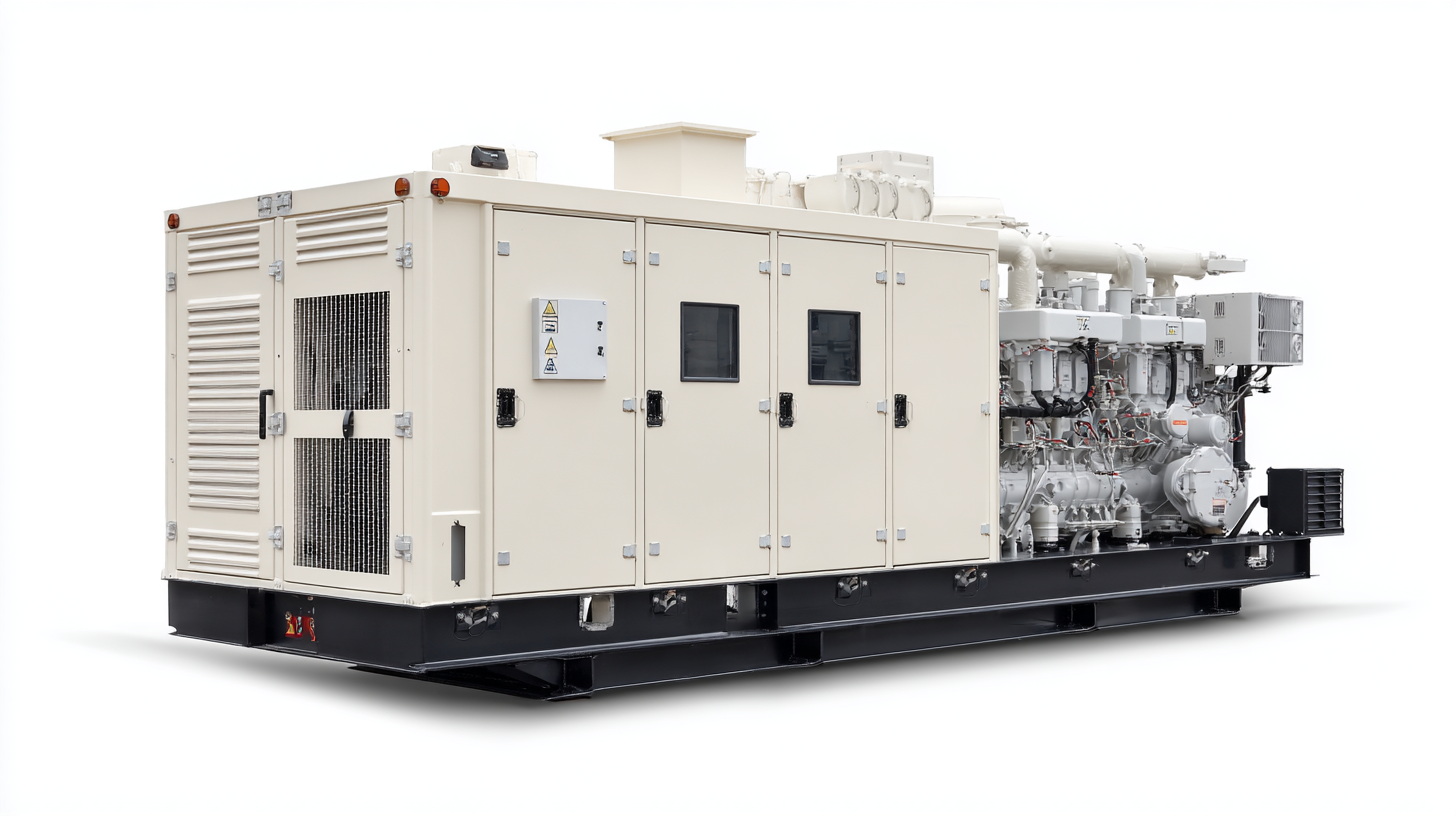
The Role of Automatic Voltage Regulation in Generator Functionality
Automatic Voltage Regulation, or AVR for short, is honestly a pretty vital feature in many of today's generators – especially like the 500 Kva ones. Basically, it keeps the voltage steady, even when your load demand jumps around. This is super important because it helps protect your sensitive electronic gadgets from sudden voltage surges or dips that could really mess things up. By automatically tweaking how the generator is excited, AVR makes sure the power you get is stable and reliable, giving you some peace of mind.
Pro tip—make sure to check the AVR during your regular maintenance. It might seem small, but staying on top of this can really extend the lifespan of your generator and make sure everything runs smoothly. Also, when you’re picking out a generator, don't forget to pay attention to the quality of the AVR. A good, high-quality regulator can make a big difference in how efficient and stable your power supply ends up being.
One more thing worth mentioning is that while AVR does a great job at keeping the voltage steady, you’ve got to watch out for how much load you’re putting on the generator. Overloading it can lead to extra strain on the system, making the AVR work overtime and possibly causing issues down the line. Keeping an eye on the load and sticking within the generator’s capacity will help keep everything running smoothly and last longer.
5 Essential Features of the 500 Kva Generator
The chart above illustrates the importance of five essential features of a 500 Kva generator. Notably, automatic voltage regulation stands out with an 85% indication of importance, demonstrating its critical role in maintaining optimal generator functionality.
Maintenance Tips for Maximizing the Lifespan of Your Generator
Keeping up with your 500 kVA generator isn’t just a good idea – it’s kinda essential if you want it to last and run smoothly when you need it most. Regular maintenance is your best friend here; it can actually cut down on those annoying surprises that might break things unexpectedly—and trust me, those can be pretty pricey. I read somewhere that with proper care, a generator’s lifespan can stretch out by up to 30%. Things like checking oil levels, coolant, and fuel quality on the regular, as well as swapping out filters when needed, really go a long way in preventing engine wear and tear over time.
And don’t forget about load testing! The folks over at the Electrical Generating Systems Association recommend doing this at least once a year. It’s a smart move because it helps catch performance issues early, before they turn into big problems. When you take good care of your generator, it can work efficiently for anywhere between 15,000 to 30,000 hours—pretty impressive, right? Plus, sticking to these habits means your generator will be more reliable, especially during those critical power outages. Whether it’s for your home or business, knowing your generator’s good to go just waves a little peace of mind your way.
Exploring Noise Reduction Technologies for Your 500 Kva Generator
When it comes to industries using 500 KVA generators, noise reduction is a pretty big deal—especially in city areas where noise laws are quite strict. As a top player in the generator world, JIANGSU LONGEN POWER TECHNOLOGY CO., LTD. makes sure to include cutting-edge noise-reducing tech in their diesel generators, so they stay compliant without sacrificing performance. Recent research shows that modern methods—like soundproof enclosures and smarter muffler designs—can cut noise levels by up to 20 decibels, which really helps keep residential and commercial neighborhoods peaceful.
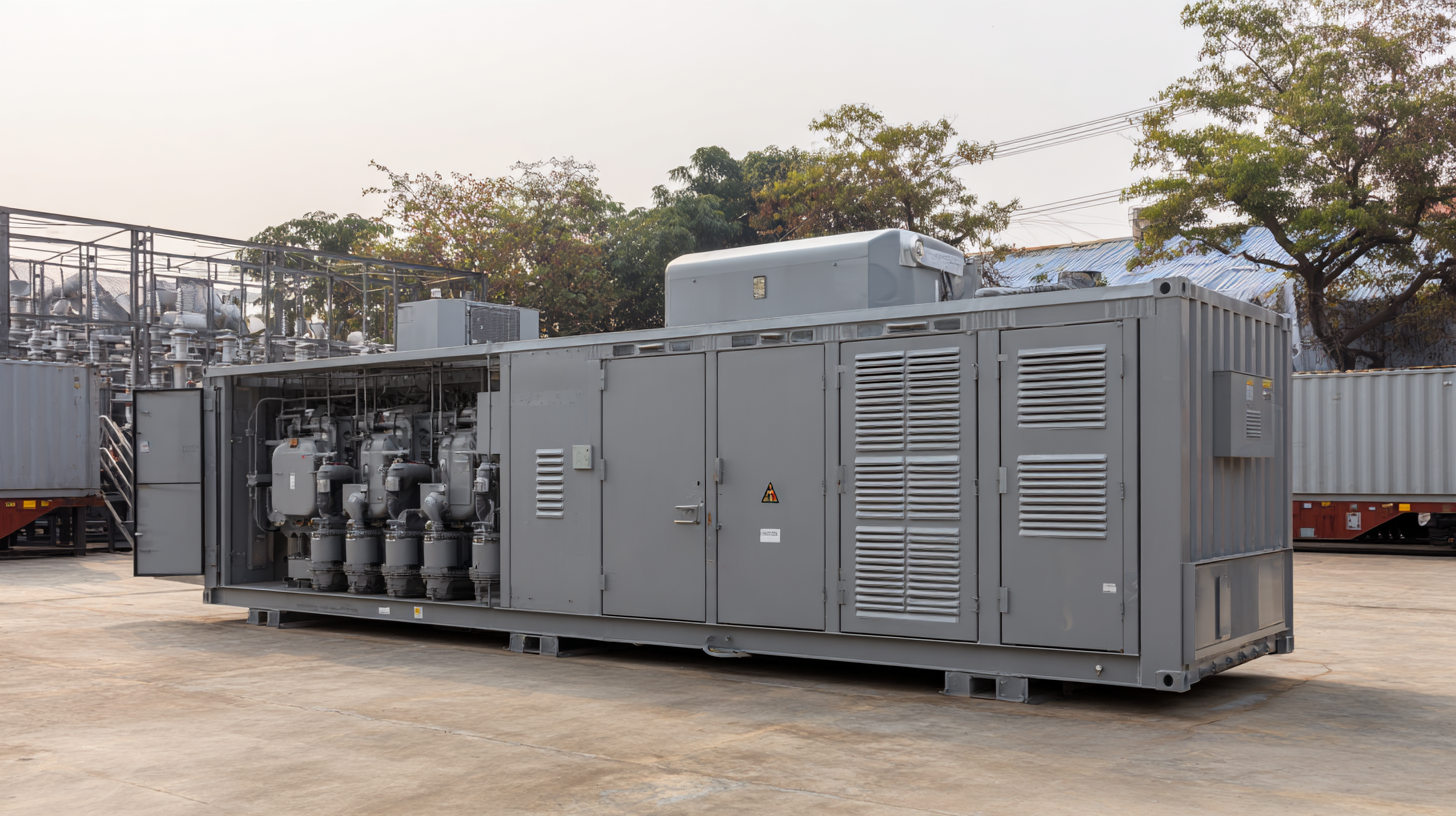
They also use sound-absorbing materials and innovative engine designs that don’t just silence things down but also boost the generator’s lifespan and reliability. Industry data even suggests that these noise tech improvements can lead to up to 30% boost in how efficiently resources are used. That’s a big win for businesses trying to get reliable power while respecting the environment and those around them. With product options ranging from 5 KVA all the way up to 3300 KVA, JIANGSU LONGEN makes sure their generators are packed with these key features—delivering solid power but with less noise, ticking all the industry standards and customer boxes.
Maximizing Efficiency: The Ultimate Guide to Choosing Rental Diesel Generator Sets from 10kVA to 1250kVA
When it comes to ensuring seamless operations during power outages or temporary projects, choosing the right rental diesel generator set from 10kVA to 1250kVA is crucial. These portable power solutions are designed for flexibility, allowing businesses to tackle a range of temporary power demands effectively. From construction sites requiring consistent power for machinery to outdoor events needing reliable lighting and sound systems, rental generators are versatile enough to meet varying needs.
One of the standout features of rental generator sets is their mobility. They can be easily transported from one location to another, making them an excellent choice for short-term projects. For example, a construction company may require a high-capacity generator for a large site, while an outdoor festival might only need a smaller unit to power vendors and entertainment. Regardless of the situation, the ability to select from a wide range of sizes and capacities ensures that businesses can maximize their operational efficiency while keeping costs in check.
Moreover, opting for rental generators allows organizations to avoid the long-term commitment and maintenance associated with purchasing permanent power solutions. This flexibility is particularly advantageous in emergency situations, where immediate access to power is essential. By understanding your specific power requirements and the advantages of mobile rental units, you can make informed choices that optimize performance and productivity in any transient scenario.
FAQS
generators?
The noise level is important because consumers prefer less intrusive power solutions, and a silent generator can enhance comfort in residential settings.
The power factor measures how effectively electrical power is converted into useful work output; a lower power factor may lead to increased fuel consumption and operational costs.
A power factor range of 0.8 to 1.0 is typically expected in well-designed generator systems.
Generators operating at a power factor lower than 0.9 can incur up to a 20% increase in energy expenses over time.
Choosing reputable engines and alternators, such as Perkins or Cummins engines with high-efficiency Stamford alternators, can significantly improve overall performance.
Ensuring the generator has power factor correction capabilities, regular maintenance, and monitoring load management strategies can help maintain an optimal power factor.
The market is growing due to the increasing demand for reliable power sources in areas with unreliable electricity supply.
Choosing a generator with better fuel efficiency can lead to lower operational costs and increased reliability of power supply.
Availability of diesel versus gas can influence the decision, particularly in areas where one fuel type may not be as accessible as the other.
Conclusion
When you're shopping for a 500 Kva generator, there are a few key things to keep in mind to make sure you get something that'll last and perform well. First off, understanding power factor really matters – it’s basically about how efficiently the generator uses the power it produces. Oh, and don’t forget about fuel efficiency; it’s a big deal because it can really impact your operating costs and being kinder to the environment too. Another feature to look out for is automatic voltage regulation—it keeps the output steady and helps avoid any damage to your connected gear.
Also, keeping up with regular maintenance is a must. It might seem like a hassle, but it really pays off by extending the life of your generator and protecting your investment. If noise levels are a concern—say you’re working in a noise-sensitive area—then exploring models with noise reduction features might be worth considering. So, by thinking about these things, you’ll be able to pick a generator that not only fits your power needs but also runs smoothly and lasts longer. It’s all about making an informed choice, right?
Related Posts
-
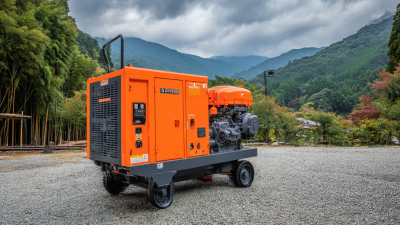
The Future of Kubota Diesel Generators in Sustainable Energy Solutions
-
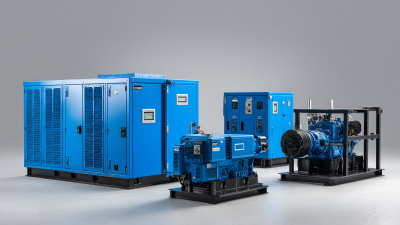
60kva Generator Showdown: Which Model Reigns Supreme in Performance and Efficiency?
-

China's Commitment to Quality in Manufacturing Best Power Plant Solutions for Global Export
-

Navigating the Future of Best Generator Set 250 Kva in 2025 Global Market Trends
-
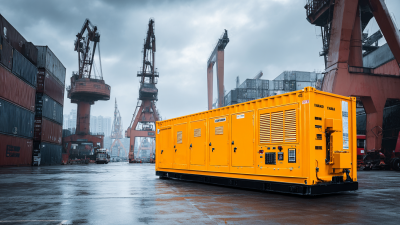
Choosing the Top 7 Factors to Identify Quality Yanmar Container Generator Manufacturers
-

How to Navigate Export Certifications for the Best 100 KVA Generator Set Success
Blog Tags:


